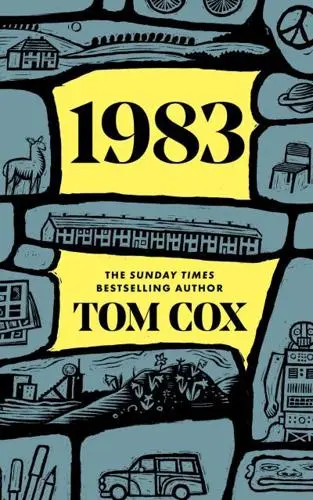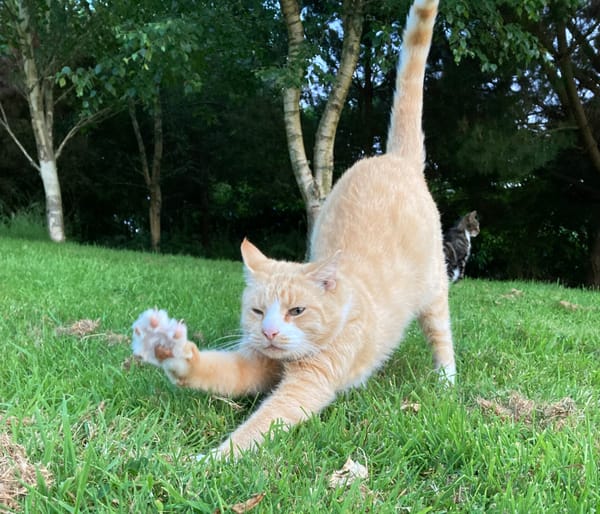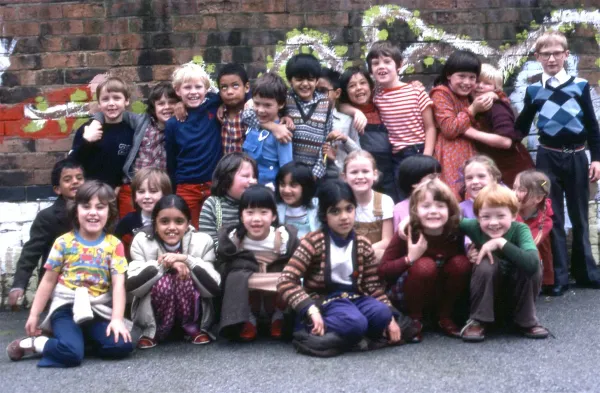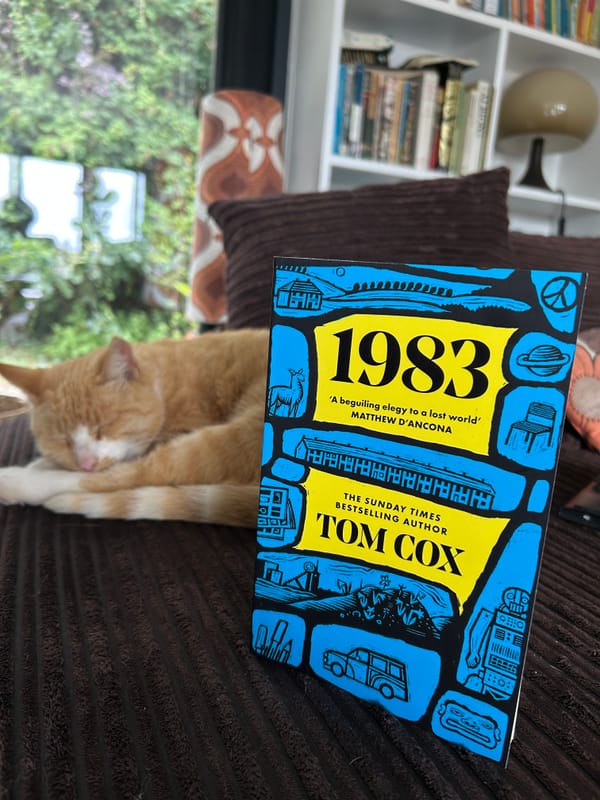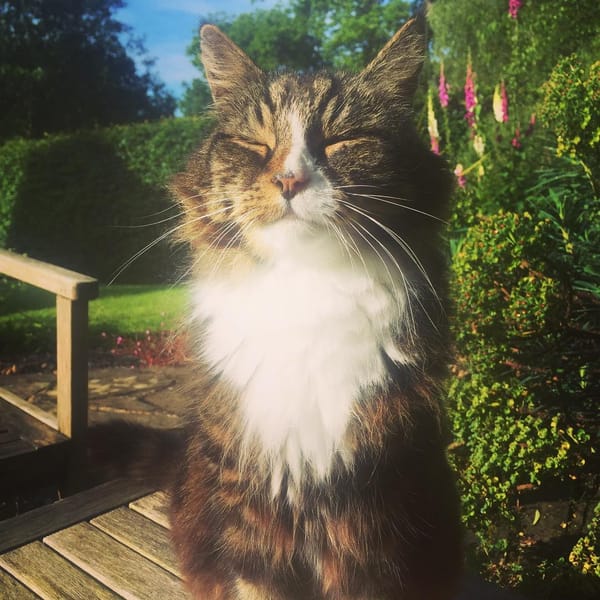The Struggle To Leave The Footbath
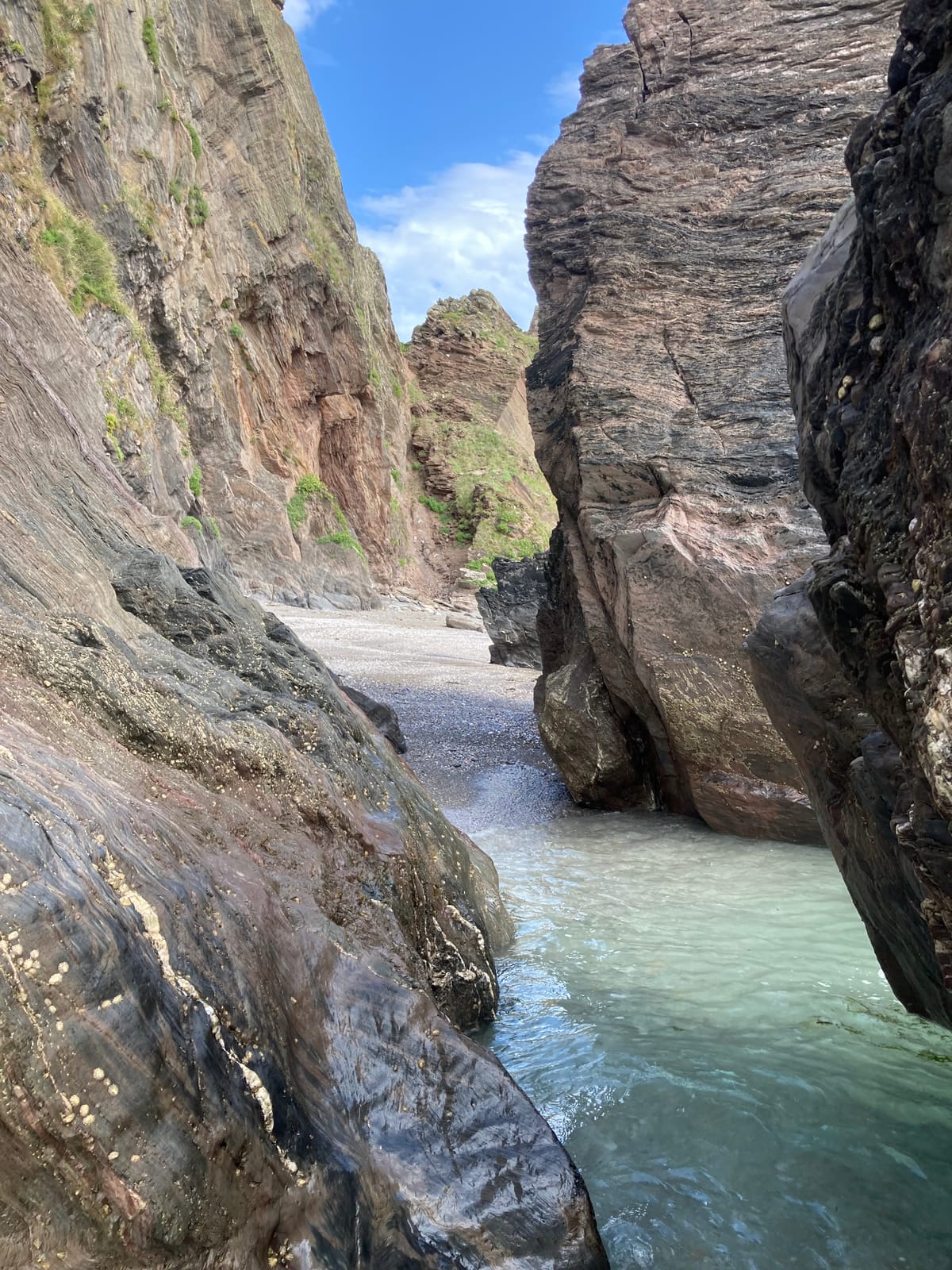
If you’d like to support my writing by taking a out a cut-price full annual subscription to my page, I will send you signed hardbacks of my books Villager and Notebook, wherever you happen to be on the planet. I also have a small selection of my mum’s original artwork for the next few people who subscribe (see below for some pics).
I had a load of other stuff I was intending to write today but sometimes you just need to write about what’s been most pressingly on your mind and what’s been most pressingly on my mind has been the dead walrus I saw on the beach the other day. Ok, it probably wasn’t a walrus, since there have only been 27 sightings of walruses in UK waters since 1894, but it did have tusks, or the visible remains of them, and that rules out the possibility that it was a seal, and I am fairly confident in stating that you get even fewer warthogs swimming off the south west coast of England than you do walruses. It actually didn’t smell as bad as you might have expected from its size and level of putrefaction. That said, none of the smattering of humans on the beach that day were clamouring to eat their packed lunch in its immediate vicinity. After I’d done about half an hour of swimming and read 20 pages of the Richard Ford novel that I keep wondering why I don’t like quite as much as I’m supposed to, I went over for a proper look. What the walrus reminded me of more than anything was a giant sweet potato: a decomposing one in the back of a giant fridge that somebody forgot to eat then threw on the compost, which in this case was made of shingle, not compost.
Substack’s Notes app doesn’t yet offer a virtual smell feature so when I posted a photo of the beach - the part of it where there was no dead walrus - nobody would have suspected that the beach was hosting a dead walrus. One of the other photos I posted alongside it, of a Red Admiral butterfly, also didn’t feature the odour of the adjacent sewage plant simmering in the UK’s current heatwave. Additionally, nobody could see the state of my head, which on that particular afternoon, like too many afternoons recently, felt like an overstuffed envelope that could no longer be sealed. A few people who saw the photos told me that they hoped I know how fortunate I am to live in such an idyllic place, which is something I do know, even though the photos were taken quite a long way from where I live. I deleted the photos a couple of hours after I’d posted them. Later I felt a little annoyed with myself for doing so. They were good photos. It was hotheaded of me to nuke them: I was letting stuff bother me that I didn’t need to. But I know why I did it. It came from the same impulse that currently makes me fantasise, dozens of times every day, about ditching my phone and, for several months, going somewhere where I’m uncontactable and can do nothing but read and write.
Last year, when I fully committed to writing on Substack, the aspect about it that excited me more than anything else was the prospect of dropping all the things that I’d been doing for so long around my writing, on social media, and being able to focus solely on the writing: “You mean I can do nothing but write my books and my essays here, and not bother with all that other promotional nonsense any more, and stop feeling like a slave to the demands of my phone? HOLY SHIT! PARTY TIME!” It was revelatory. I deleted my Twitter account for good. Eightysomething thousand followers gone at the click of a button. The feeling of freedom was even bigger than expected. It reminded me of other big bold, beneficial bits of quitting I’d done earlier in my life, directly after being cautioned against them by conservative voices. I felt better about the future than I had done in a long time. A year on, I feel the same but different. I feel the freedom but also feel something pressing against that freedom. What makes everything more tricky is that the thing pressing against the freedom is the same thing that so often feels like the key to the freedom itself.
Substack Notes is, if you ask me, the closest we might ever get to a Utopian version of a social media app. It has - and this is massively significant, in terms of the engine it works on - no ads, is largely friendly and supportive, and full of witty, knowledgeable people who read books and don’t attempt to noisily box up the world. In fact, it’s so genially teeming with self-effacing wisdom and intellect, I didn’t even quite cotton onto to the fact it is a social media app at first. For me, it’s been a brilliant way to create a gateway to my long form writing and I’ve no doubt gained many, many subscribers as a result. But as time has gone on, my relationship with Substack Notes has become more complex. If I find several creative ways to link to one of my newsletters on Substack Notes, it will be significantly more widely read. But if I do that, my brain will be a worse brain to live inside, my days less pleasant, less present. If I post a particularly nice photo on Substack Notes with a particularly apt, pithily worded caption, it might lead half a dozen more people to my work, but it will also result in people who will never read my books and essays who hang out almost exclusively on Substack Notes telling me what kind of life I have - albeit less obnoxiously than strangers on Twitter who’d never read my writing used to tell me what kind of life I had. When I post on Substack Notes, I often feel like I’m insulting my own writing, or participating in the creation of a version of myself I don’t recognise, which are things I never feel I’m doing when I am writing in long form. At the very least, when I’m on there, I often feel like I’m yet another person who’s contributing to the unhelpful culture that seems wholly committed to making sure people skim across the surface of everything, forever.
So, as ardently as I still believe in the following (which I wrote a year ago), the act of posting it on Substack Notes makes me feel to some extent like I’m full of shit:
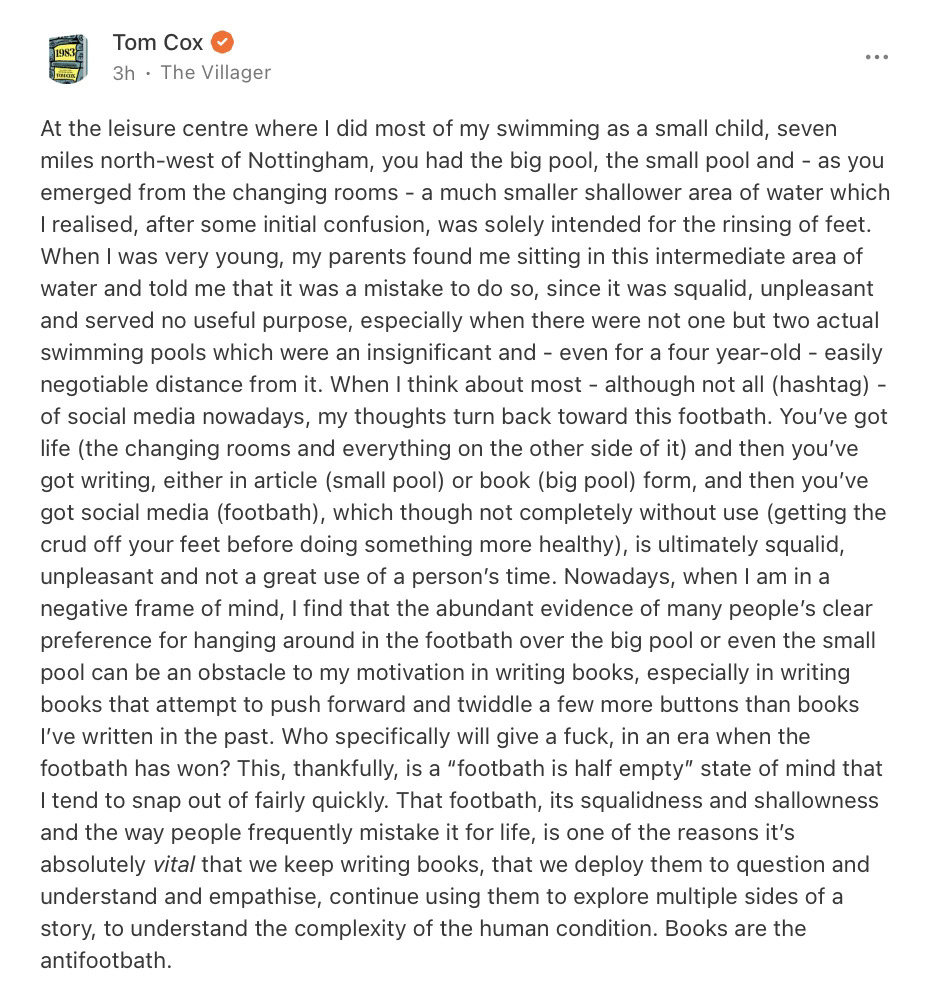
Much as I like Substack Notes, I want to have the strength to not to be on it, or to be on it only in a sporadic way, like it is a friend I see once a month, because we both know that is what is best for our friendship. It might be a more fragrant version of the footbath, with soothing music playing in the background, but it’s still the footbath. It’s still not The Thing. It’s the thing that leads to The Thing but that, if you’re not careful, you can dangerously mistake for The Thing, which then gives you less time for The Thing itself, and makes you feel irritated with yourself as a result. For me Substack, not Substack Notes, is The Thing. It’s what I came here for.
Maybe 40% of people, tops, who receive this newsletter will open it. But if I link to it on Substack Notes, regularly, for a couple of days, it will be much more widely seen and read. I want to be ok with that 40%. I want to be ok with it because being ok with it is more true to myself. And if the number drops, and my paid subscribers do too, it’s still a vastly more fulfilling way of making a living than when I worked at The Guardian newspaper or on the checkout in Tesco.
All these feelings are no doubt more intense because I have a book coming out in a week’s time. It always works this way and it’s never a time when I’m at my calmest (is it for anyone?). I remember what it used to be like on the Twatsite. Pre-publication was the time when the footbath got busier, when you felt like if you got out of it, and stopped holding your book, your book would sink, because time had already proved to you that having written the best book you could at the time you wrote it is never enough. And while you were in the footbath holding your book you became aware that real life was elsewhere, moving on, and over there were also all the books you should have been writing, but weren’t, because you were in the footbath, because you felt like your book would sink if you weren’t there.
So I know I won’t feel exactly like this forever. It’s an unusually heightened period, not aided by the fact that I know that, as usual, the pre-sales figures on my book are significantly less than earth-shattering. But I also know I don’t want to do things quite like this any more. I want, when you boil it right down, to no longer allow myself to be coaxed into being part of the cult of being interested only in the surface of everything, including me.
Not being massively interested in the surface of yourself probably wasn’t a particularly radical thing to do once upon a time but it definitely seems it right now. I have realised that this was a major factor behind a recurring pattern in use of social media, especially during the years 2014-2023: social media saying “Look, if you could just be more interested in the surface of yourself this could really work between us” and me saying “Be gone, Satan, and cease trying to deny the multitudes I contain” and then feeling drained and hopeless from that battle and wanting to have the courage of my convictions yet still being tempted by the promises social media made in the areas of helping me pay my rent/eat/publish books etc. The internet is DESPERATE for you to be interested in the surface of yourself because all of the most nefarious parts of it are fuelled by the industry of making people rampantly interested in the surface of themselves, making people rampantly interested in the surface of everything and nothing beneath it. That surface is made of ice. If you’re on it, everything speeds up. The messages you receive and the other messages they inevitably breed. The cultural recommendations, the articles you wish you had time to read. It’s all there, assaulting people’s senses and altering their brains and perception of how quickly a human being should reasonably do something and what a human being is. It’s the reason why, in 2015, when somebody asked me to retweet their lost cat poster, and - because I hadn’t looked at my phone or computer - I didn’t see their request for me to retweet their lost cat poster until five hours after the request had been posted, they called me a cunt for not retweeting their lost cat poster. It’s the reason why, in May 2020, when people started posting black squares on their Instagram accounts, and I didn’t know people were posting black squares on their Instagram accounts because I hadn’t looked at my phone for several hours and wanted to have a life, when I did finally look at my phone I found a message from someone to say they felt “deeply disappointed” that I hadn’t posted a black square on my Instagram account because they’d been “a loyal follower of my Instagram for years”. It’s the reason why people erroneously think writers want “followers” rather than readers. It’s the reason why people look at a photo of someone smiling and think the person’s life is perfect and great because they are smiling in a photo. It’s the reason that, after protracted periods of attending to what feels like vital admin on social media, some people - e.g. me - can get lulled into the belief that they want more success and attention than they do.
The big challenge - even more so, when a lot of your friends and acquaintances are skidding around on that same surface - is finding a way to detach yourself and discover that, behind it all, time is moving at the same pace it always has. My only surefire method of doing that at present is to get in the sea.
When I get in the sea at the moment, it’s not at all like people would probably imagine it if they saw a pretty photo I’d posted of the sea on Substack Notes. I’m cramming the sea in, amongst a manic schedule of replying to messages, taking payments, signing, packing and posting books, cleaning the house, travelling to and organising events and sometimes even some doing some writing. But when I’m in the sea I’m free. I’m away from the nagging guilt that I haven’t messaged people enough, even though I’m already messaging people what feels like all day. I’m away from the little black rectangular office I now feel duty bound to carry with me everywhere I go. In the sea, I am letting go of this illusion of control that little black rectangular office wants me to have. I am letting go - and this is often the biggest relief of all - of the feeling I have that if I don’t get back to everyone, immediately, always, they will all be furious with me and everything will fall apart. Life is once again moving at its true pace. I swim in the sea and, when I come out, I remember what I am here for: to write and for writing to hopefully become a path leading to the enjoyment of life at a sensible pace, rather than a path to a second, breakneck career as writing’s anxious aftercare sales representative. The sea cannot in any sense be mistaken for a footbath. When was the last time you saw a dead walrus washed on the shore of a footbath?
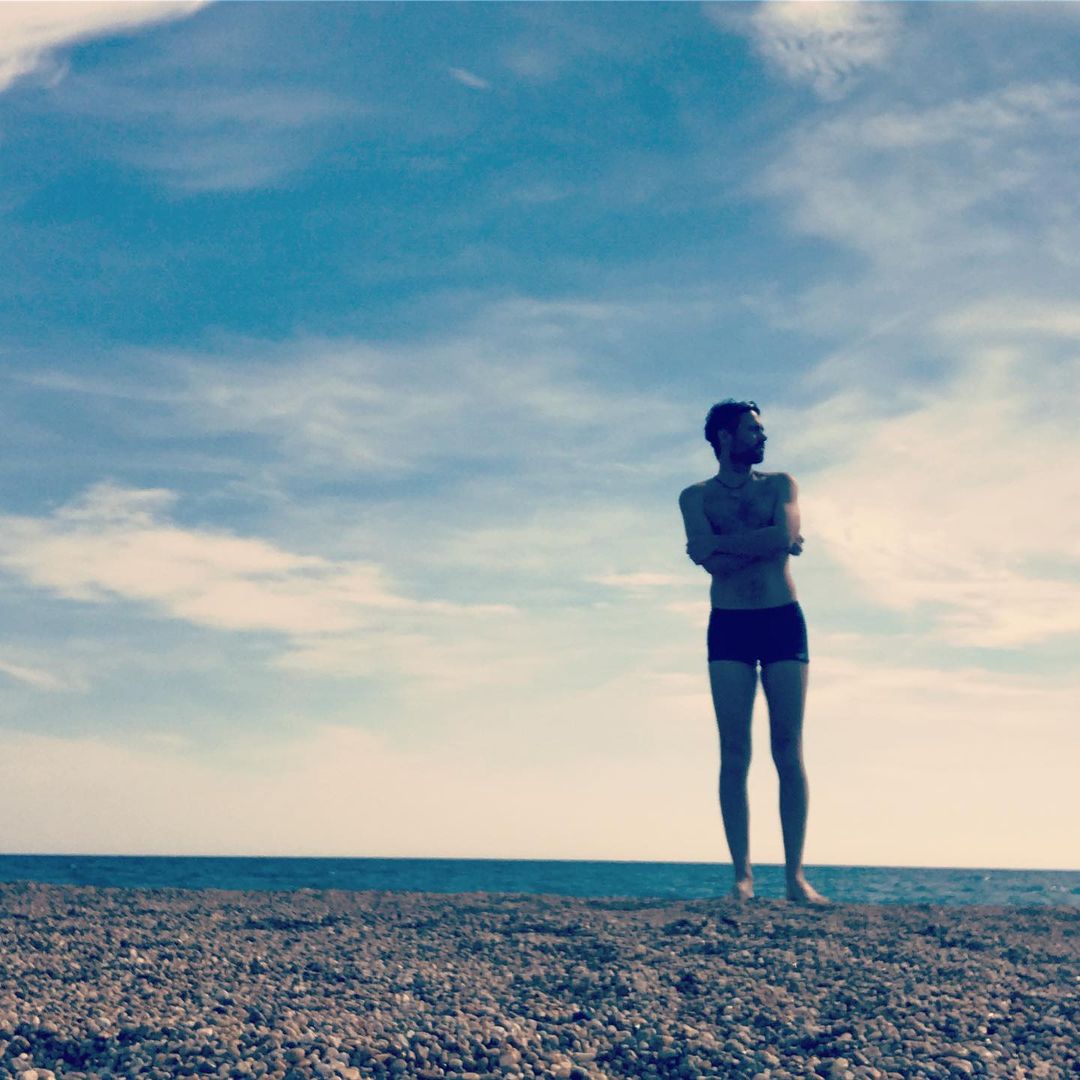
When I have driven to the sea recently, I have been listening to a 25 hour collection of Alistair Cooke’s Letters From America. I had been attempting to listen to a modern culture podcast before that, but one of the hosts had a voice like a self-satisfied canister of helium and listening to it felt like just another way of stepping into the Judgy McJudgerson Whirlwind of digital culture that I want to escape from. So I opted for Cooke instead as a contrast and comfort listen: the third time around, for me. I don’t always agree with him, and - particularly around the late 1960s - find his views a tiny bit reactionary, but I love his way of threading thoughts and observations together, and the vast overview of 20th Century America history that emerges from them. But at the same time I’m sitting there thinking, “You absolute fucking bastard, Alistair Cooke, with your computer-free office, on Long Island, and all that glorious space in your sensibly paced 20th Century life.”
Yesterday, as Alistair Cooke talked about witnessing the murder of Robert Kennedy, I drove back to the beach with the walrus on it. The walrus was still dead, and no more than 24 hours more dead than it was the last time I saw it. To my knowledge there had been no news stories about the walrus. And because there had been no news stories about it, there had been nobody reading just the headlines of the news stories and quickly forming opinions about the demise of the walrus based on that, before moving onto the headline of another news story that they wouldn’t read.
I took a photo of the walrus but did not upload it to the internet, so nobody who saw the photo who didn’t know the walrus misinterpreted the state the walrus was in and commented, “That walrus looks really happy. I hope it knows how fortunate it is to be living such a flawless life.”
I have not included a photo of the walrus here. I refuse to attach a dead walrus onto the end of the rod of this essay, and dangle it into Instagram or Facebook as clickbait.
It’s probably not even a walrus.
Can you find a way to adapt to your era, to the vast changes in communication, in publishing, in life, but also step outside of it somewhat, for the good of your own health? Can you create the space that you know you used to have, a long time ago? I’m still trying to work that out. I suspect a lot of us are, right now. I know that I have found writing books more enjoyable than ever recently but that I have found a lot of the things that seem to be required of me around writing books extremely corrosive, beneath the bright promises they often offer. I know that I can’t carry on at the pace I have been going at. I can’t send this many messages every day. I can’t feel this guilty every day about all the other messages I haven’t sent, all the writing people send me that I haven’t read. I can’t be like the people I know who enjoy the footbath more than I do, and no longer read books. I can’t keep saying “Yes” to things as much as I have been doing recently. I can’t keep worrying about letting people down as much as I have been doing recently. I can’t stare at screens as much as my publishers probably need me to for my book to make the money they want it to. Maybe, also, I can’t do Substack Notes any more, despite that fact that, in some ways, I feel I should, feel pressure to do so, and feel like I’ll miss it if I don’t. What I can do is write more books and write more essays on Substack.
So I’m going to stop being such a coward, and be me, and just leave this here, and not tell anyone about it elsewhere.
Then I’m going to get in the sea.
I’ve included some photos below of some of my mum’s art that I’m giving away to my next few annual paid subscribers. Everyone who subscribes before the end of August will also receive signed hardbacks of my books Villager and Notebook.
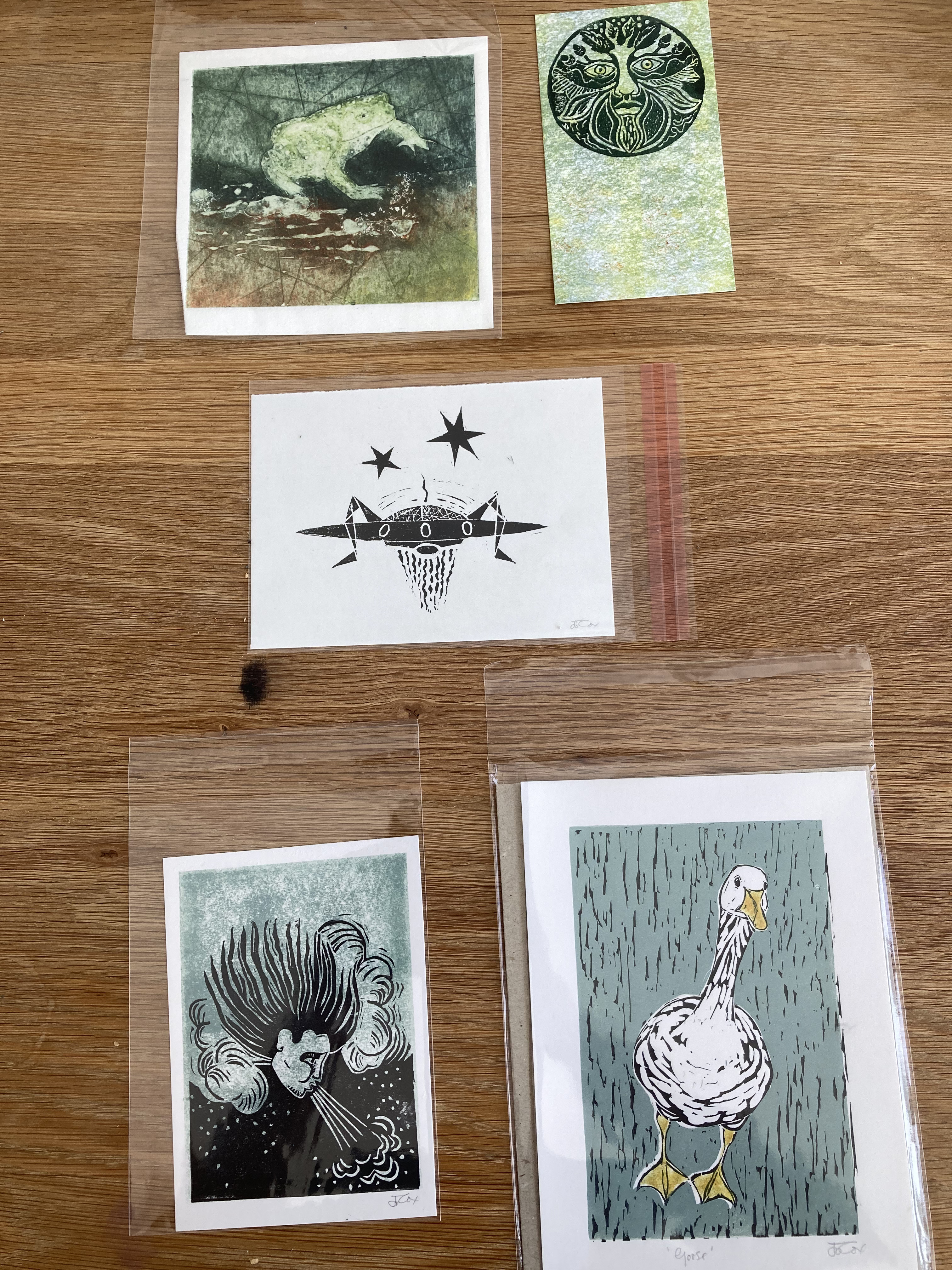
It’s now just ten days until my new novel, 1983, is published. You can order it here from Blackwells with free international delivery. Blackwells also stock my other books, including Villager, Notebook, Ring The Hill, Help The Witch and 21st-Century Yokel.
